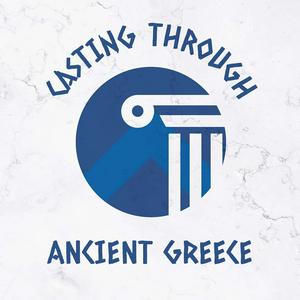Teaser: Plataea, Clash of Military Systems (Patreon)
Two distinct military systems, two worldviews, one decisive battlefield. The clash at Plataea in 479 BCE represents far more than a Greek victory over Persian invaders – it embodies the collision of fundamentally different approaches to warfare, each reflecting the society that created it.Following the naval defeat at Salamis, Persian King Xerxes withdrew with most of his forces, but left his trusted commander Mardonius with an elite army estimated at 70,000 men. This wasn't merely an occupation force but a carefully selected contingent designed to bring the Greek campaign to a decisive close. With its diverse troops drawn from across the vast Persian Empire, this army excelled in mobility, missile warfare, and cavalry tactics – elements that had fuelled Persian expansion across the ancient world.Standing against this imperial host was the Greek coalition, cantered around the hoplite phalanx – heavily armoured citizen-soldiers fighting in tight formation. Each man carried a large round shield (aspis), bronze helmet, chest plate, greaves, and long spear, creating a formation where survival depended on maintaining cohesion with one's neighbours. This military system directly reflected Greek civic values – interdependence, discipline, and collective action for the polis.The preliminary phases revealed the contrasting strengths of both approaches. Persian cavalry successfully harassed Greek positions, disrupting supply lines and forcing the hoplites into defensive postures ill-suited to their equipment and training. Yet when Mardonius mistook a Greek repositioning for retreat and ordered a full attack, the disciplined Spartan and Tegean hoplites demonstrated the phalanx's devastating effectiveness in close combat. Mardonius' death in the melee shattered Persian coordination, transforming their advance into a catastrophic rout.What makes Plataea fascinating isn't just the outcome but the complex interplay of factors that produced it. The Greek victory stemmed not from inherent military superiority but from effectively exploiting favourable terrain, maintaining psychological resilience, and capitalizing on the moment when conditions suited their strengths. The battle became a cultural touchstone that shaped Greek identity for generations – a moment when citizen-soldiers defending their homes prevailed against history's greatest empire.Curious about how ancient military innovations continue to influence modern strategy? Subscribe to explore more pivotal moments where tactics, technology, and human determination reshaped history.Support the show💬 Stay Connected with Casting Through Ancient GreeceFollow us for updates, discussions, and more ancient Greek content:🌐 Website📸 Instagram🐦 Twitter📘 Facebook 🎙️ Love the show? Don’t forget to subscribe, leave a review, and share it with fellow history enthusiasts. Your support helps keep the stories of ancient Greece alive!


